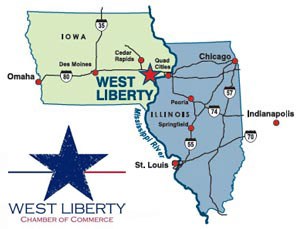Ontario County, just south and east of Rochester, N.Y., is unleashing the power of fiber optics after private providers turned their noses up at the rapidly-growing Finger Lakes region.
“We just said we need this so badly, we just did it ourselves,” says Ed Hemminger, president and CEO of Axcess Ontario, a non-profit corporation created by the county government to run the $7.5 million dollar project. Hemminger appeared on this afternoon’s edition of CNBC’s Power Lunch.
The 180-mile fiber optic network now two-thirds complete is expected to be finished by year’s end. Hospitals and schools are already leasing capacity on the fiber ring.
Axcess Ontario doesn’t actually provide broadband service to businesses and consumers itself. Instead it leases capacity to all-comers, inviting them to use the fiber ring to enhance their broadband infrastructure. The company doesn’t provide residential service, for example, but it could enhance another provider’s ability to deliver service. Right now, the county is contemplating a wireless Internet service for consumers, if they can find a provider. Frontier Communications could be a likely contender, considering it already provides a Wi-Fi service in downtown Rochester and in portions of suburban towns like Brighton, Pittsford, and Greece.
Ontario County is one of the bright spots in western and central New York’s difficult economy. Both residential and business growth continues, despite the recession, particularly in communities like Canandaigua, Victor and Geneva. Having a state-of-the-art fiber ring enhances the area’s ability to attract new businesses and jobs to the Finger Lakes region, often better known for tourism. At least that is the plan.
“Honestly every company is an Internet company because they all have to use the Internet,” Hemminger claims.
Having the county build the network was the only prospect for getting it done.
“We can have a Return on Investment of 25 years, while the private sector has to recoup its costs in three to four years,” Hemminger says.
Thanks to Stop the Cap! reader Jeff for sending word.
[flv]http://www.phillipdampier.com/video/CNBC Making Broadband Accessible 6-10.10.flv[/flv]
Ed Hemminger discusses the Axcess Ontario fiber ring project in Ontario County, N.Y., on today’s edition of Power Lunch on CNBC. (2 minutes)


 Subscribe
Subscribe






